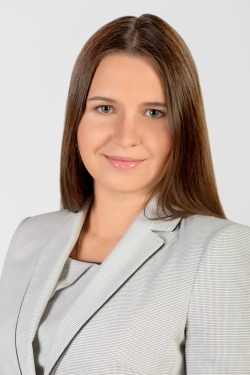Legal overviews
Antistress changes in the legislation on controlled foreign companies
- Date: 01.03.2016
We continue to follow up with the most significant changes in legislation on controlled foreign companies (“CFCs”) and would like to present you with the most recent information.
On February 15, 2016, Federal Law No.32-FZ “On introducing amendments to Parts 1 and 2 of the Russian Tax Code and to Federal Law ‘On introducing amendments to Parts 1 and 2 of the Russian Tax Code (regarding taxation of profits of controlled foreign companies and income of foreign organizations)’” took effect (the “CFC Law”).
The CFC Law contains a range of substantial changes specifying current regulations of the Russian Tax Code as regards taxation of CFCs:
1. Double taxation of dividends received by a Russian organization from a CFC is eliminated:
- Dividends received by a taxpayer when distributing a CFC’s profits are not subject to taxation in Russia if documentary confirmation is provided evidencing that a tax on these dividends was withheld by the CFC.
2. Procedure for calculation of a CFC’s profits for taxation purposes in Russia is clarified:
- Pursuant to the new CFC Law, taxpayers who control CFCs are entitled to voluntarily determine the CFC’s tax base pursuant to the Russian tax legislation.
Earlier, according to the general rule, taxpayers had to calculate a CFC’s profits based on the financial statement prepared pursuant to the CFC’s personal law for the financial year and were able to apply Russian tax rules, only if i) CFC’s financial statement is not subject to a mandatory audit pursuant to the CFC’s personal law, and ii) on condition that the CFC is a permanent resident of a foreign country which has no international agreement with Russia on tax issues.
- The list of income types which are not considered when determining a CFC’s profits was extended: income received by a CFC as total gains/losses of CFC’s subsidiaries/affiliates (except for dividends), recognized in the CFC’s financial statement pursuant to its personal law, are not included in the CFC’s profits.
3. Change in provisions connected with accounting for property received by a taxpayer due to a CFC’s liquidation:
- The term of CFC liquidation during which a taxpayer enjoys the right not to include income in the form of property value and property rights received during a CFC’s liquidation is extended up to January 1, 2018.
Moreover, cases are specified when the indicated term can be extended further; for instance, if a decision on CFC liquidation was made before January 1, 2017, but the liquidation procedure cannot be completed by January 1, 2018 due to restrictions provided by the CFC’s personal law, the CFC’s participation in litigation, etc.
- Pursuant to the CFC Law, not only controlling entities enjoy exemption in Russia from taxation of property owned by a foreign company under liquidation, but also other shareholders, participants, interest holders and founders, who are not recognized as controlling persons, subject to compliance with requirements for the liquidation procedure.
4. Change in rules for filing notifications on participating in foreign organizations and CFCs:
- Term for filing a notification on participating in foreign organizations is extended to three months from the date the participation / change in ownership interest in a foreign organization occurs. Previously a term of one month was in effect.
- List of information to be provided in notifications on participation in foreign organizations and notifications on CFCs is extended.
- Persons participating in foreign organizations exclusively through direct or indirect participation in one or several public companies being Russian organizations are exempted from filing notifications on participation in foreign organizations.
5. Procedure for recognizing taxpayers as controlling persons is specified:
- If a taxpayer is recognized as a person controlling a CFC based on his participation share in a foreign organization being more than 10%, provided the participation of all Russian tax residents in such foreign organization exceeds 50%, then the taxpayer is entitled to submit explanations and documents along with a notification on the CFC to the tax authority confirming that the taxpayer was not aware that he is a controlling person in the relevant calendar year.
The taxpayer who provided a notification on a CFC in due time pursuant to requirements of the tax authority is exempted from the liability specified by the Russian Tax Code in Article 129.5 (20% of the amount of unpaid tax) and Article 129.6 (100,000 rubles for each CFC for which a notification was not provided).
6. Procedure for determining the first tax period for foreign companies who independently declared themselves to be Russian residents is specified:
- If a foreign organization independently declared itself to bea Russian tax resident starting from January 1 of a calendar year, then the first tax period for profit tax purposes for such organization will be the period from January 1 of the calendar year in which the application declaring itself as a Russian tax resident was filed until the end of such calendar year.
- If a foreign organization independently declared itself to be a Russian tax resident from the date of filing with the tax authority an application on declaring itself to be a Russian tax resident, then the first tax period for profit tax for such organization will be the period from the date of filing such application with the tax authority until the end of the calendar year in which the said application was filed.
 |
Elena Lepneva
|
 |
Ekaterina Chernenkova
|
Additional notes
Should any questions arise in connection with the above or if you need any additional materials, please contact Elena Lepneva or Ekaterina Chernenkova, St. Petersburg Office of Capital Legal Services.
This Information letter keeps the clients of Capital Legal Services and other interested parties abreast of information that may, to any extent, affect their activity or cater to their particular interests. The opinions and commentaries expressed in this information letter shall not be deemed as legal opinions and do not cancel the need to obtain legal advice or legal opinion on separate issues.